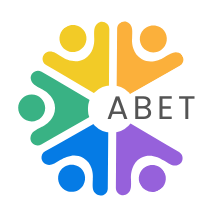ABET or Adult Basic Education and Training, is the term used to describe the education of adults when providing them with basic literacy and numeracy skills. It also describes the obtaining of further skills and education by adults. For writing the adult matric or Amended Senior Certificate (ASC), adults are defined as over 21 years of age. The term “lifelong learning” illustrates what ABET tries to achieve. Lifelong learning is the “ongoing, voluntary, and self-motivated” pursuit of information for personal or job-related reasons. As a result, it improves not just social inclusion, active citizenship, and personal growth, but also self-sufficiency, competitiveness, and employment.
Adult basic education and training is the general conceptual foundation towards lifelong learning and development, comprising of knowledge, skills and attitudes required for social, economic and political participation and transformation applicable to a range of contexts. ABET is flexible, developmental and targeted at the specific needs of particular audiences and, ideally, provides access to nationally recognised certificates.
The concept of ABET is uniquely South African. In the English-speaking world, ABE means Adult Basic Education. South Africa added the T, for Training in the policy initiatives of the early 1990s. Making the change to ABET was controversial for a time. It was believed that alternative, non-formal approaches to adult education were powerful ways to improve the education of the many . The reasons for adopting the term fell into two main groups.
- One of the deepest critical perceptions of education (including adult education) in South Africa, especially on the part of labour unions and business, was that education had little application in life and work, while training meant drilling in routine jobs with no attention to underlying knowledge and values. Adding the T showed a commitment to the integration of education and training into ABET.
- ABET grew out of adult literacy work. The adoption of ABET rather than adult literacy work was the result of political struggle informed by research. In spite of fine achievements of adult literacy work in the struggle, literacy alone was not considered adequate to support real social transformation. ABET was meant to offer an appropriately adult route to a general education aimed at making a significant improvement in quality of life.
Source: Parliamentary Monitoring Group
(Please note that the page on the Parliamentary Monitoring Group website linked to above, also deals with the history of ABET in South Africa, who needs ABET, and success stories amongst others.
